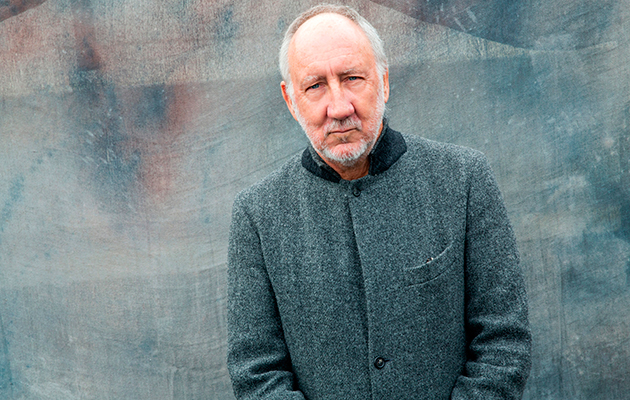So how does Classical Quadrophenia fit into the more general on-going process of revisiting your work?
It’s a signpost. It’s encouraging. Because in the modern world, it’s quite interesting to say, “Right, what we’re going to do is a lot of inexpensive writing on paper. Then we’re going to gather some investment, do it, then put it out.” The way we did it in The Who was not like that. I had this unfolding idea about trying to save The Who from itself by reconnecting it with its audience; and also hopefully for the audience to reconnect with The Who. To be absolutely honest, they didn’t get it. Kit Lambert felt we needed it, but nobody else seemed to give a fuck. There was a lot of fucking going on, basically. That’s what it was about.
“A lot of fucking”?
Yes. Actual sexual fucking. And fucking with the world. Keith Moon running over his chauffeur and killing him and buying Rolls Royces every day, and John Entwistle buying suits or armour and living in a big house in the country. There was a lot of rock’n’roll bollocks going on. In the middle of it, I was struggling to reconnect the band with its Shepherd’s Bush audience. I was also trying to make sure we could properly replace Tommy, which had become a yoke around the band’s neck. We had this tripartite show. A few early singles, Tommy, then a rock’n’roll smash up. The Tommy bit in the middle was where the music happened; where The Who completed their circle. I wanted Quadrophenia to fill that gap. It was a difficult thing to pull off, and led to the only occasion in my entire life where Roger had ever hit me.
What happened?
I was practically on the verge of a nervous breakdown. I couldn’t communicate in normal language with him. I said to him, “Oh shut up, you cunt.” You don’t say that to Roger Daltrey. You can say it now, but you couldn’t then. It was really, really, really exhausting. So today to be able to look at producing music, even though orchestras are massive and expensive, it’s incredibly controllable. You know what you’re going to spend, you know what you have to do. It’s like writing a book. You do all the work, give it to a good editor, they correct it, you put it out then you cross your fingers, but the job’s done. But the rock’n’roll method is incredibly cumbersome. “Well, we’ve done the backing track. Now let’s come in and spend two weeks…” Apparently, a lot of modern bands don’t work the way we used to work. One of the reasons that The Who worked the way we did was that Keith, John and I and our close road crew – our guitar techs, Bobby Pridden our sound man and John Wolfe, who was our production manager – loved each other’s company. So we’d string it out. John and I used to stay late drinking brandy and telling stories.
Do you miss those days?
Yeah.
How does Classical Quadrophenia fit in with the rest of your 2015? There’s a lot going on…
Most of the things that are happening for me, I have to remind myself are very, very easy. I look at a schedule. Being away from home for two months twice a year is painful for one reason only. I live a lovely life in the UK. Rachel and I have five dogs and we miss them if we’re away. She won’t be on the road with me all the time, so I will miss her. I don’t drink, I don’t do drugs and I don’t go with girls, so it will be me and crime novels for two months. The shows? I don’t like them. I don’t find them fulfilling. But I’m brilliant at it. I find it incredibly easy. I drift through it. I get out the other end and the next day, somebody comes up to me and says, “You were fucking amazing yesterday!” It’s like being able to make a pair of shows and knowing that you’ve got to a point that whenever you make a pair of shoes for somebody they’re going to last them for life. I don’t get particularly excited about it, but I do find it easy.
So what constitutes a successful Who live show in 2015 for you?
What jazz and blues musicians, particularly long solo-playing guitar players, Eric Clapton, Jimmy Page, the heavy metal players, all talk about is getting into the zone. A lot of virtuoso playing is about learning patterns and rising above patterns. For me, in The Who, there are very, very few moments when I can do that, where I can play and watch my hands and my body do things that I don’t control, that are coming from my innate musicianship. They’re very brief moments, but if there are a few moments like that in any Who show, for me that’s a massive bonus. In the days of The Who riffing – the Live At Leeds days – I used to love that. Particularly the fact that with Keith and John I had these two guys that listened and watched so intently that they would follow me whatever I did. I was never that eloquent a player, but they [Moon and Entwistle] would be doing it at the same time. I used to snap out of it and think, ‘Fuck! I’ve just make this extraordinary riff up on the spot and they’re playing it at the same time!’


